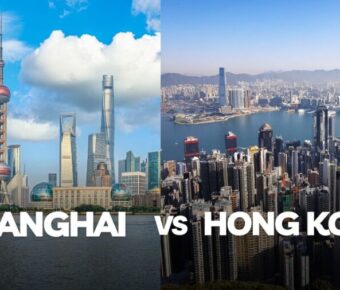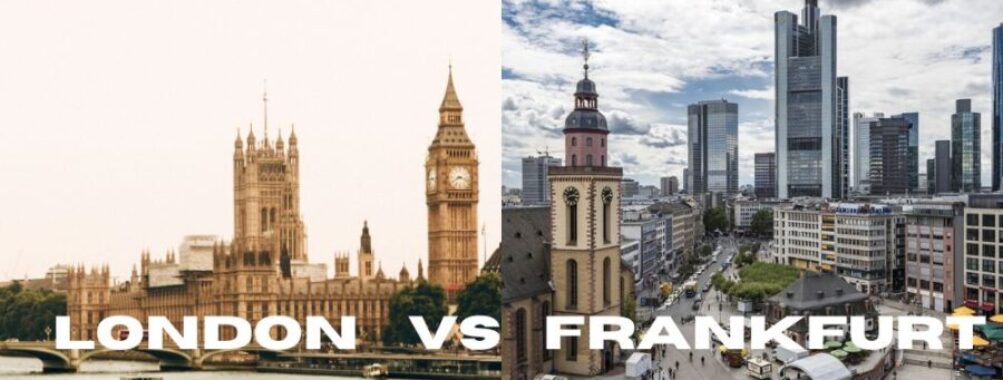
London vs Frankfurt: A Battle of Two Financial Powerhouses in 2025
London and Frankfurt stand among Europe’s most influential cities, each offering visitors a unique blend of history and modern life. These powerhouse destinations shape global finance while maintaining their distinct cultural identities through museums, architecture, and local traditions.
London costs about 39% more than Frankfurt for daily expenses, but it delivers more famous landmarks and tourist attractions. The British capital draws millions with its royal palaces, world-class museums, and iconic sights like Big Ben and Tower Bridge. Frankfurt’s charm lies in its mix of classic German architecture and gleaming skyscrapers.
Both cities shine in different ways for travelers. London brings more famous sights and English-speaking ease, while Frankfurt offers better value and a more relaxed pace. The German city’s excellent public transport system makes exploring simple, and its central location makes it perfect for exploring more of Europe.
Table of Contents
- Historical Evolution
- London’s Rich Past
- Frankfurt’s Heritage
- Economic Profiles
- London as a Global City
- Frankfurt’s Financial Significance
- Cultural Landscapes
- London’s Cultural Tapestry
- Frankfurt and German Traditions
- Cost of Living Comparison
- Housing and Rent
- Daily Expenses and VAT
- Tourist Attractions
- Must-See Landmarks
- Parks and Gardens
- Museums and Galleries
- Lifestyle and Entertainment
- Dining and Cuisine
- Nightlife and Music
- Shopping and Commerce
- City Amenities and Transportation
- Public Transport Systems
- Family-Friendly Activities
- Living in London vs. Frankfurt
- The Expat Experience
- Environmental Quality
- Accessibility and Travel
- International Airports
- Ease of Travel
- Sports and Recreation
- Frequently Asked Questions
- What are the cost of living differences between London and Frankfurt?
- Which city has a better quality of life, London or Frankfurt?
- Regarding weather patterns, how do London and Frankfurt compare?
- In terms of cultural and social opportunities, how do London and Frankfurt differ?
- What are the professional opportunities like in London compared to Frankfurt?
- How do transportation options in London and Frankfurt contrast?
- Book Your Dream Experience
- More Travel Guides
Historical Evolution
Both London and Frankfurt have grown from modest medieval settlements into major European financial centers, shaped by centuries of trade, warfare, and cultural exchange.
London’s Rich Past

London began as a Roman settlement called Londinium in 43 AD. The city grew into a vital trading hub during the medieval period, with the Thames River as its lifeline.
The Tower of London, built in 1066, shows how the Normans changed the city’s landscape. This fortress protected the city and served as a royal residence, mint, and prison.
The Great Fire of 1666 led to London’s rebirth. Christopher Wren rebuilt St Paul’s Cathedral and many other landmarks that still stand today.
The Victorian era brought massive growth. The city added Buckingham Palace, Big Ben, and the world’s first underground railway. These innovations made London a model for other cities.
Frankfurt’s Heritage

Frankfurt started as a Roman military camp and grew into a free imperial city in the Middle Ages. Its location on the Main River made it perfect for trade fairs.
The city became a key banking center in the 1500s. The Rothschild family started their banking empire here, setting the stage for Frankfurt’s future as a financial hub.
World War II bombing destroyed much of Frankfurt’s old town. The city rebuilt with a mix of restored historic buildings and modern towers. The reconstructed Römerberg square shows how Frankfurt keeps its medieval charm while embracing progress.
The European Central Bank’s arrival in 1998 sealed Frankfurt’s role as a leading financial center. The city mixes its trading heritage with modern banking power.
Economic Profiles
London and Frankfurt stand as two major financial powerhouses in Europe, each with distinct economic strengths and roles in the global economy. Their financial sectors drive growth, create jobs, and shape international markets.
London as a Global City
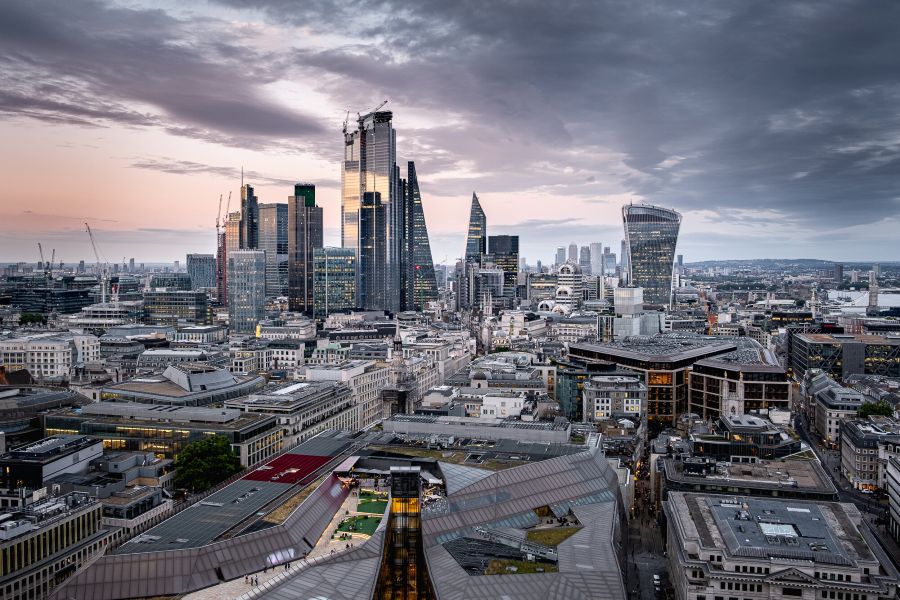
The City of London remains one of the world’s leading financial centers. It hosts more international banks than any other city and handles massive daily trading volumes in foreign exchange markets. The city’s GDP reflects its economic might, making it one of Europe’s wealthiest urban areas.
The financial district, known as “The Square Mile,” employs over 400,000 people in finance and related services. Major global banks keep their European headquarters here, despite recent Brexit-related changes.
Professional services like law firms, consultancies, and insurance companies form a vital part of London’s economy. These businesses work closely with the financial sector to create a complete ecosystem of business services.
Frankfurt’s Financial Significance
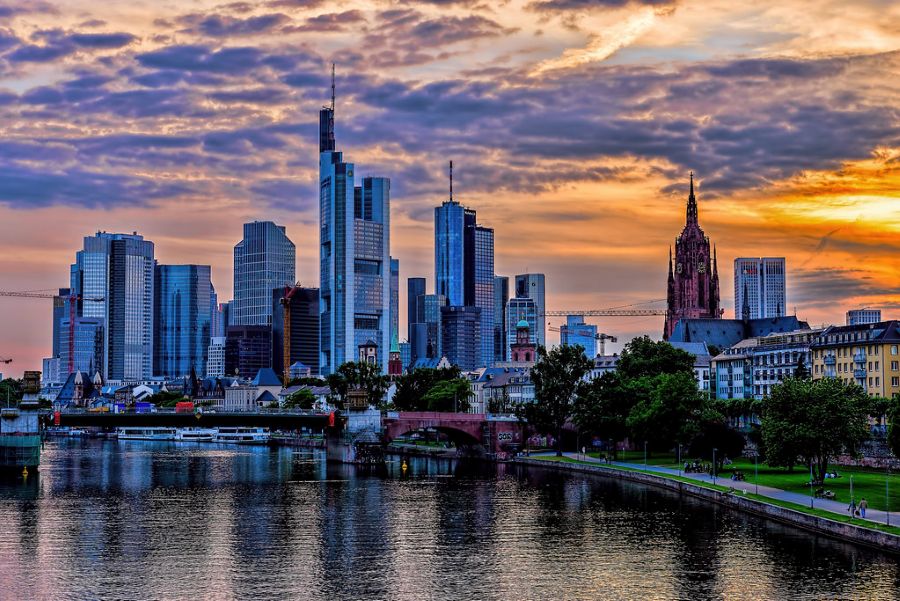
Frankfurt serves as continental Europe’s main financial hub and hosts the European Central Bank. The city’s financial district, with its distinctive skyline, has earned it the nickname “Mainhattan.”
The city offers strong job prospects in finance and business. Many international banks have expanded their Frankfurt offices since Brexit, creating new opportunities for finance professionals. The local GDP of $565 billion shows the city’s economic strength.
Living costs in Frankfurt are 32.9% lower than London, with rent prices 53.2% less expensive. This makes Frankfurt an attractive option for businesses and workers looking to maximize their earning potential.
The presence of the German Stock Exchange (Deutsche Börse) and major German banks makes Frankfurt a key player in European financial markets.
Cultural Landscapes
Both London and Frankfurt offer distinct cultural experiences shaped by centuries of history and modern influences. The cities showcase their heritage through different approaches to arts, entertainment, and daily life.
London’s Cultural Tapestry
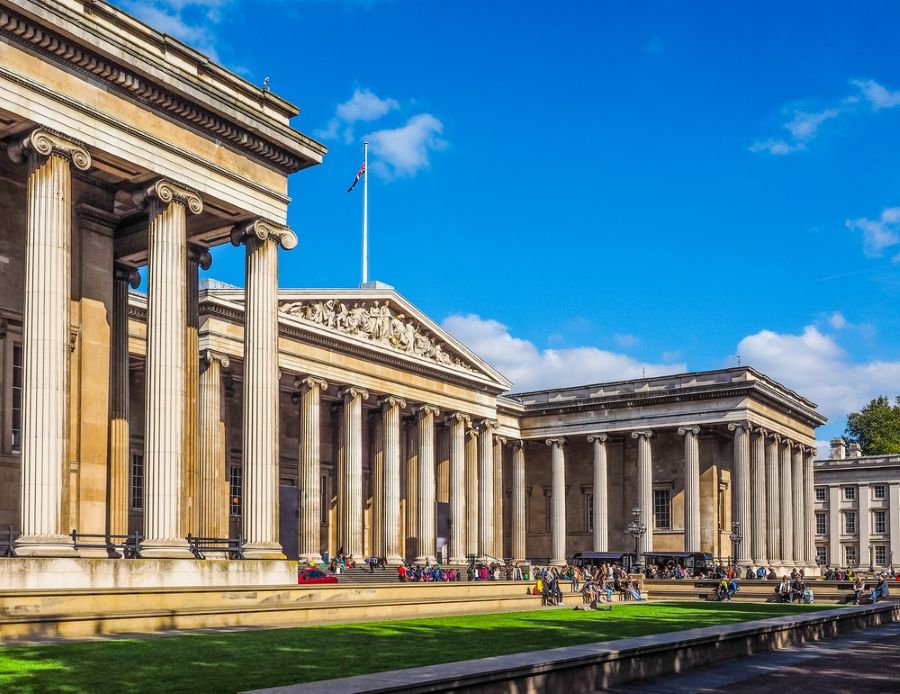
London stands as a melting pot of global cultures. The city’s arts scene thrives with over 170 museums, including the famous British Museum which holds treasures from around the world – and best of all, many offer free entry.
The West End dazzles with world-class theater productions. On any given night, you’ll find over 40 venues staging everything from Shakespeare to modern musicals.
Live music fills the air across London’s neighborhoods. From classical concerts at the Royal Albert Hall to indie bands in Camden’s pubs, the city pulses with musical energy.
Street art adds color to areas like Shoreditch and Brick Lane. These creative districts blend traditional British culture with modern artistic expression.
Frankfurt and German Traditions
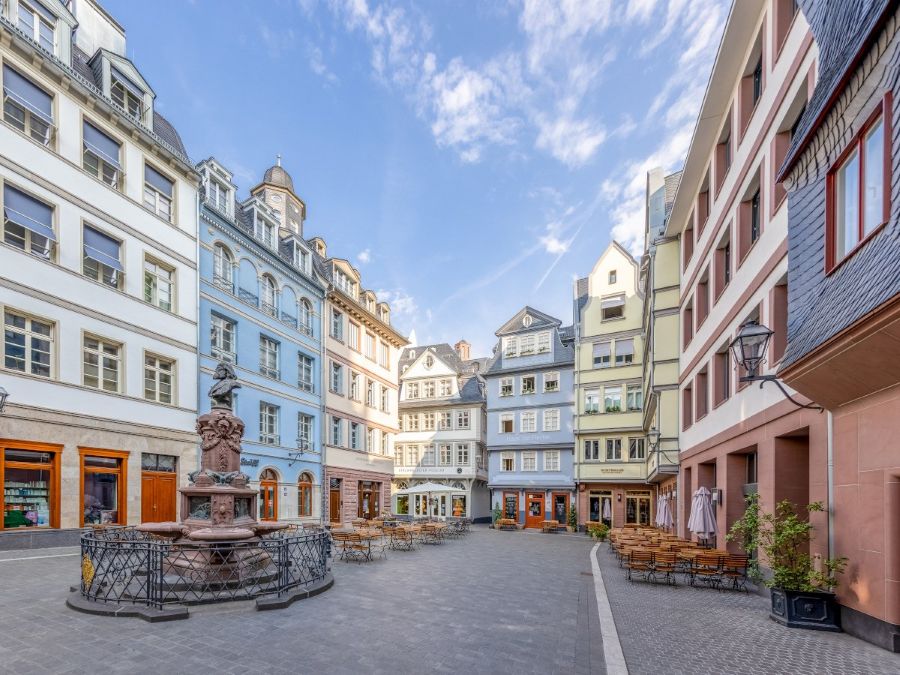
Frankfurt’s cultural heart beats strongest in its charming Altstadt (Old Town). The reconstructed medieval square of Römerberg shows off traditional German architecture and hosts seasonal markets.
The city embraces its role as a cultural bridge. The Museum Mile along the Main River houses nine major museums, each celebrating different aspects of art and history.
Traditional German cuisine takes center stage in Frankfurt’s apple wine taverns. These cozy spots serve local specialties like Handkäse mit Musik and the city’s namesake frankfurters.
Music lovers flock to the Alte Oper (Old Opera House) for classical performances. The building itself tells stories of Frankfurt’s past while hosting modern cultural events.
Cost of Living Comparison
Living costs differ significantly between these two major financial hubs. London ranks among Europe’s most expensive cities, while Frankfurt offers more affordable options across most spending categories.
Housing and Rent
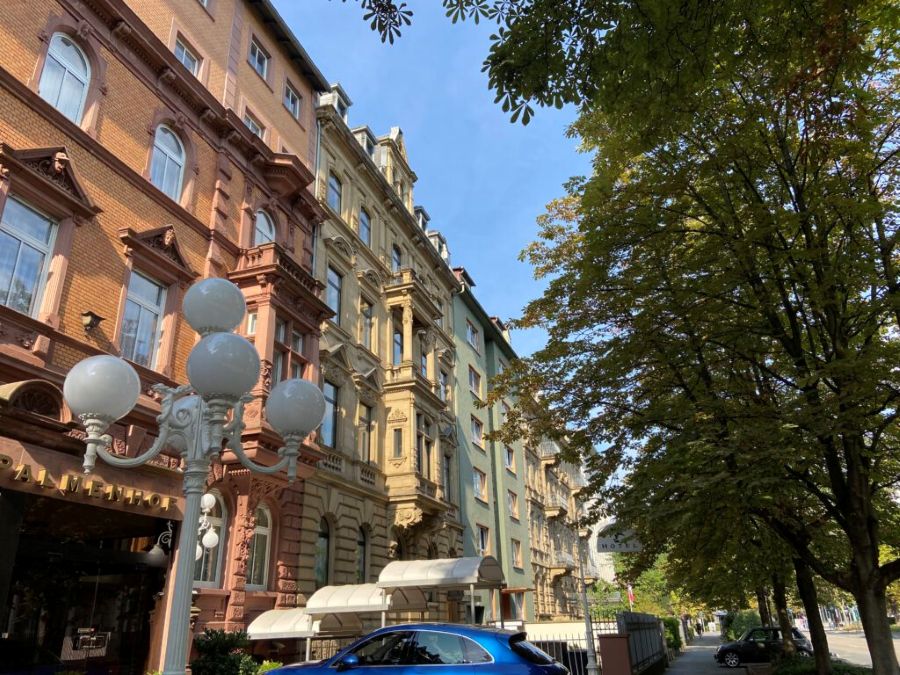
A one-bedroom apartment in central London costs about £2,000 per month, nearly double Frankfurt’s €1,200 average. The price gap grows wider in suburban areas.
Utilities like electricity, heating, and water add roughly £165 monthly in London. Frankfurt residents pay about €150 for similar services.
Property prices show an even bigger difference. London’s average price per square meter is £12,000 in central areas. Frankfurt’s equivalent spaces sell for around €7,000.
Daily Expenses and VAT
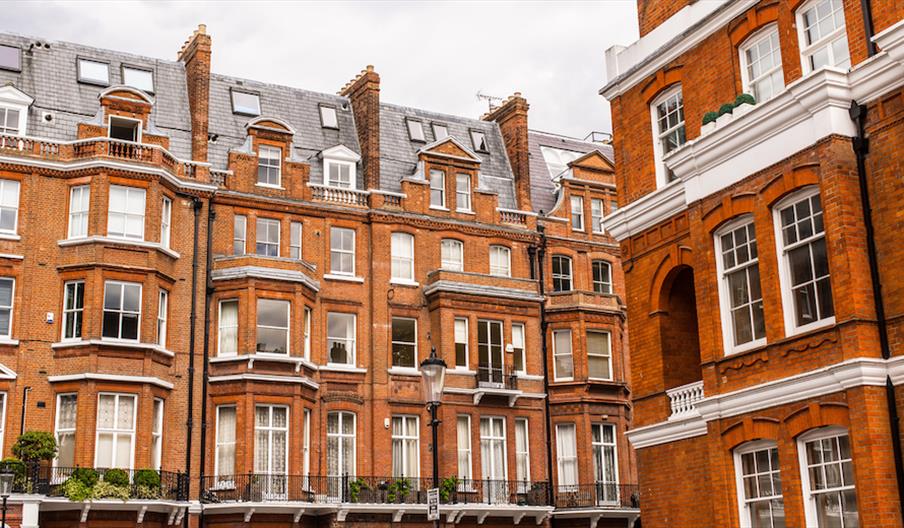
Groceries cost 25-30% more in London than Frankfurt. A typical weekly grocery shop runs about £100 in London versus €65 in Frankfurt.
Transportation costs hit London wallets harder. A monthly public transit pass costs £150, while Frankfurt commuters pay €90.
The VAT rate differs slightly – 20% in London versus 19% in Frankfurt. This small gap adds up on large purchases.
Restaurant meals show the price divide too. A mid-range dinner for two costs £80 in London, while Frankfurt diners spend about €60 for similar quality.
Tourist Attractions
Both cities offer unique attractions that showcase their distinct character and history. London stands out with its royal heritage and iconic landmarks, while Frankfurt blends modern architecture with medieval charm.
Must-See Landmarks
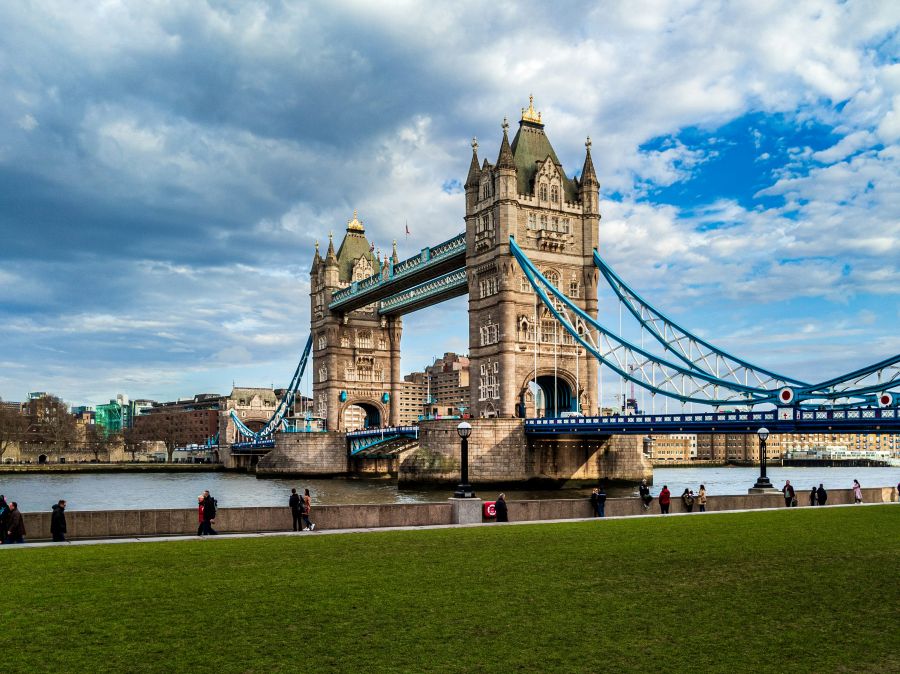
The Tower Bridge dominates London’s skyline, with its Victorian Gothic design and glass-floor walkways. Westminster Abbey hosts royal ceremonies and holds the tombs of famous poets and monarchs.
The London Eye gives visitors amazing views across the city. The 30-minute rotation shows Big Ben, St Paul’s Cathedral, and the winding Thames River.
Frankfurt’s Römer Square features medieval buildings and the city hall. The Main Tower offers panoramic city views from its observation deck.
The 95-meter-tall St. Bartholomew’s Cathedral marks Frankfurt’s historic center. Its red sandstone architecture dates back to the 14th century.
Parks and Gardens
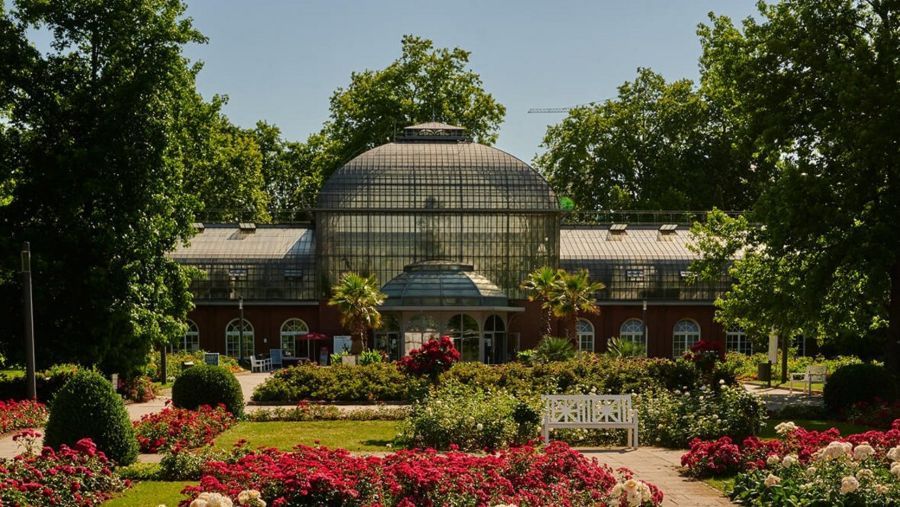
Kew Gardens spans 326 acres of London greenery. Its Victorian glasshouses protect rare plants, while treetop walkways let visitors explore the canopy.
Hyde Park provides a peaceful escape with its Serpentine lake and rose gardens. Families enjoy boating and picnics during summer months.
Frankfurt’s Palmengarten houses Europe’s largest botanical collection. Its themed gardens showcase plants from different climate zones.
The Grüneburgpark offers wide lawns and walking paths. The Korean Garden inside adds an Asian touch to this peaceful space.
Museums and Galleries
The Natural History Museum in London displays dinosaur skeletons and precious gems. Its Victorian building amazes visitors before they even step inside.
The British Museum holds world treasures like the Rosetta Stone and Egyptian mummies. Entry is free, making it perfect for culture lovers.
Frankfurt’s Städel Museum shows art from seven centuries. Its collection includes works by Dürer, Botticelli, and van Eyck.
The Museum of Modern Art focuses on pieces from the 1960s onward. Its riverside location adds to the experience of viewing contemporary masterpieces.
Lifestyle and Entertainment
Both cities offer distinct cultural experiences shaped by their unique character and local populations. The lifestyle contrasts between London’s fast-paced metropolitan energy and Frankfurt’s more relaxed business-meets-pleasure vibe.
Dining and Cuisine

London’s food scene reflects its multicultural identity. You’ll find everything from Michelin-starred restaurants to quirky food markets like Borough Market and Brick Lane. The city excels in international cuisines, particularly Indian food in areas like Southall.
Traditional British pubs serve comfort foods like fish and chips and Sunday roasts. East London hosts innovative pop-up restaurants and food trucks.
Frankfurt’s culinary landscape centers on hearty German fare. The city is famous for its Apfelwein (apple wine) taverns in Sachsenhausen district. Local specialties include Frankfurter Würstchen (sausages) and Grüne Soße (green sauce).
The Kleinmarkthalle indoor market showcases regional products and international foods. Many restaurants cluster around Fressgass street, known for upscale dining.
Nightlife and Music

London’s nightlife spans countless neighborhoods. Soho buzzes with theaters and cocktail bars. Shoreditch attracts creative types with its warehouse parties and live music venues. Camden rocks with alternative scenes and historic music halls.
The city hosts world-class clubs like Fabric and Ministry of Sound. Live music venues range from the O2 Arena to intimate jazz clubs.
Frankfurt’s nightlife centers in Alt-Sachsenhausen, packed with traditional bars and modern clubs. The area around Hauptwache features upscale lounges and cocktail bars.
Live music thrives at Jazzkeller and Batschkapp. The city’s electronic music scene pulses at venues like Robert Johnson.
Shopping and Commerce

London offers diverse shopping districts. Oxford Street features major brands and department stores. Covent Garden mixes boutiques with street performers. Vintage hunters love Portobello Road Market.
Luxury shoppers head to Knightsbridge for Harrods and designer boutiques. Camden Market specializes in alternative fashion and crafts.
Frankfurt’s main shopping area stretches along the Zeil pedestrian zone. The MyZeil mall features modern architecture and international brands.
The Goethestraße hosts luxury boutiques. Local designers and indie shops cluster in Nordend and Bornheim neighborhoods.
City Amenities and Transportation
Both cities offer excellent amenities and transport options for visitors and locals alike. These European hubs mix modern convenience with rich cultural experiences.
Public Transport Systems
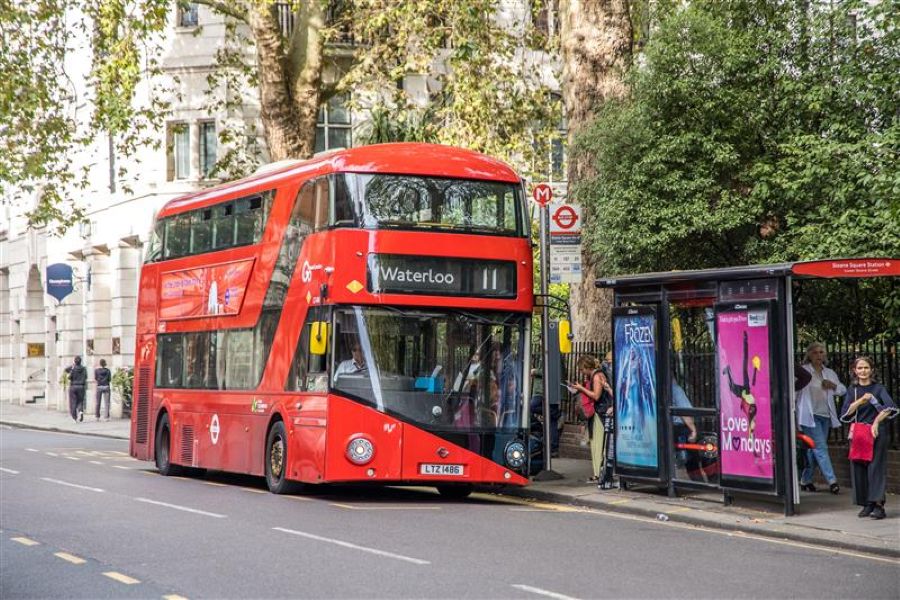
London’s famous Underground network covers most of the city with 11 lines and over 270 stations. The red double-decker buses add a classic touch while serving countless routes across the capital. The Oyster card makes paying for travel simple.
Frankfurt’s public transit is fast and efficient. The U-Bahn and S-Bahn trains connect all major areas, and buses fill any gaps in service. A single ticket works on all transport types, making it easy to get around.
Both cities have excellent links to their airports. London’s Heathrow Express takes just 15 minutes to reach central London. Frankfurt Airport is even closer, with direct trains taking only 12 minutes to the main station.
Family-Friendly Activities

London shines with free museums like the Natural History Museum and Science Museum. Kids love the London Eye’s views and the changing of the guard at Buckingham Palace. The city’s many parks offer perfect spots for family picnics.
Frankfurt’s Palmengarten botanical gardens delight families with exotic plants and playgrounds. The Senckenberg Natural History Museum features exciting dinosaur exhibits. The Main Tower’s observation deck gives great city views that kids enjoy.
Street performers entertain at London’s Covent Garden, while Frankfurt’s Römerberg square hosts fun seasonal markets. Both cities maintain clean, safe spaces where families can explore without worry.
Living in London vs. Frankfurt
Living in these two major European financial hubs offers distinct experiences in terms of lifestyle, culture, and daily routines. The cities present unique challenges and benefits for newcomers, from environmental factors to social integration.
The Expat Experience
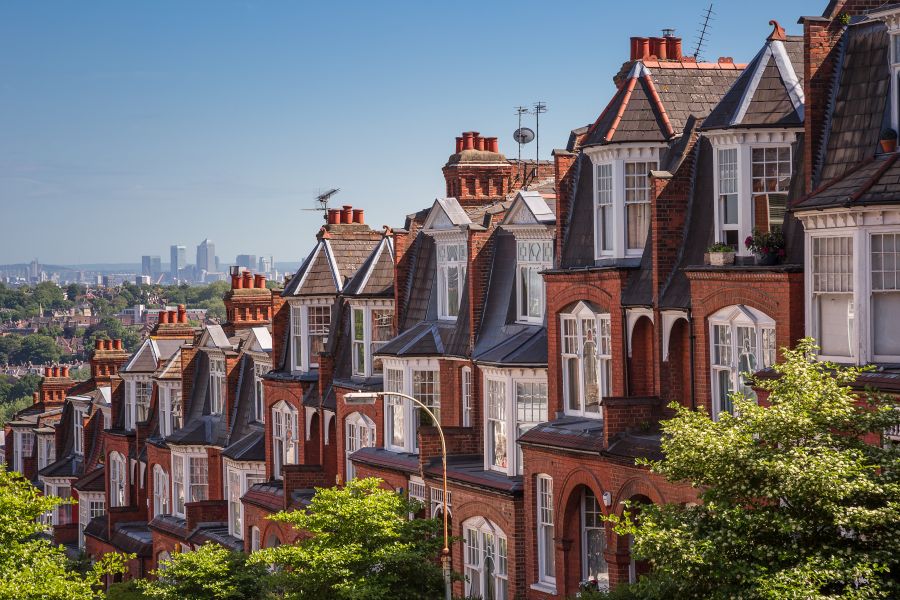
Frankfurt welcomes expats with its compact size and strong international community. The city’s smaller scale makes it easier to build connections and settle in quickly. Many companies offer relocation support and language assistance to new arrivals.
London’s massive size and diverse population create endless opportunities for networking and cultural experiences. English being the primary language gives some expats an advantage. The city attracts people from all walks of life, forming tight-knit communities in various neighborhoods.
Housing costs hit the wallet harder in London – about 112% more expensive than Frankfurt. A one-bedroom flat in central London might cost £2,000 monthly, while a similar place in Frankfurt runs around €1,200.
Environmental Quality

Frankfurt stands out with its extensive green spaces and the Main River running through the heart of the city. The smaller population density means less crowding and noise pollution. Residents enjoy easy access to parks like the Stadtwald and well-maintained cycling paths.
London struggles more with air quality due to heavy traffic and its larger size. The city works to improve this through initiatives like the Ultra Low Emission Zone and expanding green spaces.
Parks dot both cities, but Frankfurt’s compact nature makes them more accessible. The German city’s public transport runs efficiently and covers most areas, while London’s vast network can feel overwhelming at first but connects all corners of the metropolis.
Accessibility and Travel
Both London and Frankfurt feature modern transportation systems and major international airports that connect travelers to destinations worldwide. Each city offers distinct advantages for getting around and exploring.
International Airports

Frankfurt Airport stands as one of Europe’s busiest air travel hubs, with efficient security and immigration processes. Two terminals handle over 60 million passengers yearly. The airport links directly to Frankfurt’s city center through a 15-minute train ride.
London serves travelers through multiple airports. Search flights to London at Heathrow, Gatwick, Stansted, Luton, and London City. Heathrow, the largest, welcomes 80 million passengers annually. Travel times from airports to central London range from 15 minutes to an hour.
Ease of Travel
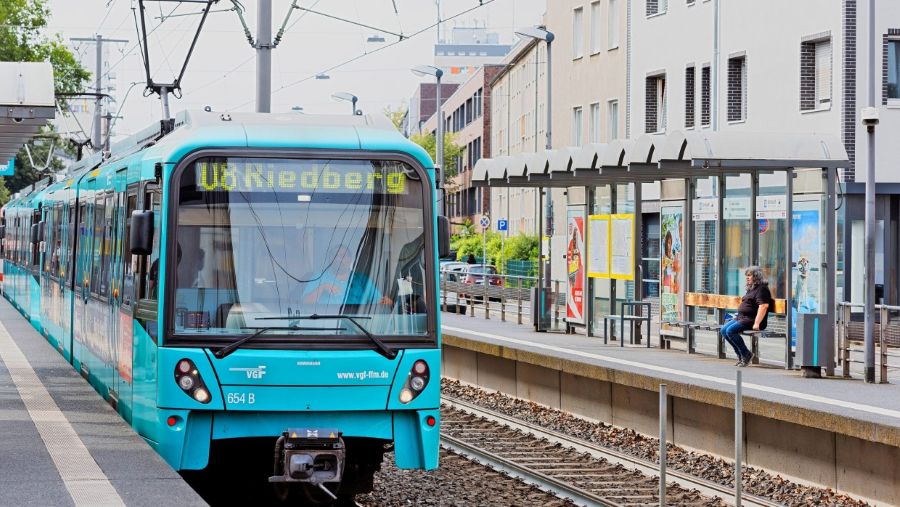
Frankfurt’s compact size makes it simple to navigate. The U-Bahn and S-Bahn trains cover the entire city. Walking between major attractions takes 20-30 minutes in the central district.
London’s extensive public transport network includes the Underground, buses, and trains. The system can feel complex for first-time visitors. Book accommodations near stations to make getting around easier.
Visitors with mobility needs find Frankfurt more manageable due to its smaller scale. Most stations have elevators and accessible platforms. London provides good accessibility too, though the older Underground stations may lack step-free access.
Sports and Recreation

London and Frankfurt both offer plenty of options for sports fans and active visitors. London leads the way with more large sports venues, boasting 20 stadiums and arenas that can seat over 20,000 people.
Frankfurt has 13 major sports facilities, which still gives the city good capacity for hosting big sporting events. The smaller number of venues matches Frankfurt’s more compact size compared to London.
Football dominates the sports scene in both cities. London features world-famous clubs like Arsenal, Chelsea, and Tottenham Hotspur. Frankfurt’s main team, Eintracht Frankfurt, plays in the Bundesliga and has a passionate local following.
Beyond watching sports, both cities provide lots of ways to stay active. London’s parks like Hyde Park and Regent’s Park have running trails, sports courts, and rowing boats. The River Thames hosts rowing clubs and water activities.
Frankfurt’s green spaces offer similar outdoor recreation. The MainUfer riverside promenade is perfect for jogging and cycling. The city’s Stadtwald forest has hiking trails and exercise stations.
Popular Activities in Both Cities:
- Running and cycling paths
- Public swimming pools
- Tennis courts
- Fitness centers
- Golf courses
- Rock climbing gyms
Winter sports fans can find indoor ice skating rinks in both cities. They also serve as venues for ice hockey matches and figure skating shows throughout the cold months.
Frequently Asked Questions
London and Frankfurt stand as two major financial hubs in Europe with distinct characteristics. These cities offer contrasting lifestyles, career paths, and living experiences that shape daily life for residents and visitors alike.
What are the cost of living differences between London and Frankfurt?
Living costs in London run about 30% higher than Frankfurt. A one-bedroom apartment in central London costs around £2,000 monthly, while similar accommodations in Frankfurt average €1,200.
Basic utilities and groceries cost less in Frankfurt. A weekly grocery shop for one person costs about €75 in Frankfurt compared to £100 in London.
Public transport passes in Frankfurt cost €90 monthly, making them cheaper than London’s £150 monthly passes.
Which city has a better quality of life, London or Frankfurt?
Frankfurt offers a more relaxed pace of life with shorter commute times. The city’s smaller size makes daily tasks more manageable.
London provides more entertainment options and cultural diversity. The city never sleeps, with activities available 24/7.
Green spaces are plentiful in both cities. Frankfurt’s city forest covers 48 square kilometers, while London’s parks make up 47% of the city.
Regarding weather patterns, how do London and Frankfurt compare?
Frankfurt gets more sunny days per year than London. The German city sees about 1,662 hours of sunshine annually.
London experiences milder winters but more rain throughout the year. Average rainfall in London reaches 58mm in October, compared to Frankfurt’s 51mm.
Summer temperatures in Frankfurt can reach higher peaks, often hitting 30°C, while London typically stays cooler.
London offers over 170 museums compared to Frankfurt’s 30. The British capital hosts more theater shows, concerts, and cultural events year-round.
Frankfurt shines with its traditional apple wine taverns and Christmas markets. The city maintains strong German cultural traditions.
Both cities feature diverse food scenes. London excels in international cuisine variety, while Frankfurt specializes in German and European dishes.
What are the professional opportunities like in London compared to Frankfurt?
London remains Europe’s largest financial center with more job opportunities in finance, tech, and creative industries. The city hosts offices of major global companies.
Frankfurt serves as the main financial hub of Germany. The city specializes in banking jobs and offers growing opportunities in the tech sector.
Salaries in London tend to be higher, but taxes and living costs eat into take-home pay more than in Frankfurt.
How do transportation options in London and Frankfurt contrast?
Frankfurt’s public transport system efficiently covers the city with buses, trams, and trains. Most locations are reachable within 30 minutes.
The extensive tube network in London serves millions daily. The system includes underground trains, buses, and overground rail services.
Frankfurt Airport ranks as Germany’s largest hub, while London manages six airports serving different areas and travel needs.



